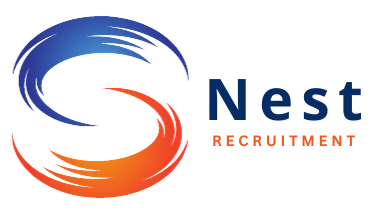How to build a strong nurse onboarding program
In the fast-paced and ever-evolving healthcare sector, the implementation of a robust Nurse Onboarding Program is crucial for both the retention of staff and the enhancement of patient care. This process, extending far beyond basic nursing orientation, lays the groundwork for new hires by equipping them with the tools, resources, and confidence needed to excel in their roles. A well-structured onboarding program for new hires not only integrates the nurses into their team but also aligns their skills and knowledge with the organisation's values and practices, ultimately leading to improved outcomes and job satisfaction.
The article will delve into the paramount importance of the nurse onboarding process, discussing its impact not just on the individual but also on the collective efficacy of the healthcare setting. It will outline the key components of an effective onboarding program, from the initial stages of nursing orientation to the full integration of onboarding team members. Additionally, practical implementation strategies will be explored, providing a comprehensive guide for developing or refining your Nurse Onboarding Program. Measures to assess the effectiveness of the program and strategies for ongoing improvement will also be highlighted, ensuring that the process remains dynamic and responsive to the needs of onboarding nurses and the organisation they serve.
Understanding the Importance of Nurse Onboarding
Effective onboarding is crucial for the success of new nurses, yet many programs lack robust, evidence-based support. Inefficient onboarding can lead to poor job satisfaction among new nurses if they feel unprepared for the realities of their roles. This often results in reality shock, where nurses struggle with the behaviours and expectations of their new professional environment, potentially causing them to leave the organisation or even the profession. Conversely, a positive onboarding experience is significantly related to lower turnover intentions, underscoring the importance of well-structured orientation programs.
Benefits of a Strong Onboarding Program
A comprehensive onboarding program addresses various aspects of reality shock, promoting increased job satisfaction, higher competency levels, and reduced stress among new nurses. Such programs are essential for integrating new hires effectively, aligning their skills with the organisation's values and practices. Effective onboarding results in improved outcomes, job satisfaction, and retention. Organisations that invest in robust onboarding programs often see a boost in nurse retention by up to 82% and a 70% increase in productivity.
Challenges Without Proper Onboarding
Without proper onboarding, new nurses face numerous challenges that can hinder their integration and performance. These include navigating a new professional culture, managing stress from relocation, and adapting to the intricacies of a new healthcare system. The absence of a structured onboarding process can lead to high turnover rates, with most nurses who decide to leave doing so within the first 3-12 months of employment. The cost of replacing nurses is substantial, not only in terms of financial outlay but also due to the loss of potential productivity and the impact on patient care.
By addressing these challenges through tailored onboarding programs, healthcare organisations can ensure that new nurses are well-prepared, supported, and motivated to thrive in their new roles.
Key Components of an Effective Onboarding Program
Orientation and Training
Effective onboarding programs for nurses should begin with a comprehensive orientation that introduces them to the organisation's culture, policies, and procedures. This initial training is crucial for setting expectations and providing new hires with the confidence they need to perform their duties. Programs should include practical exercises, such as scenario-based training for common tasks like administering IV drips. These activities help nurses apply theoretical knowledge in practical settings, enhancing their critical thinking and clinical judgement skills.
Additionally, the use of assessment-driven learning is recommended to tailor the training to individual needs, ensuring that all nurses, regardless of their prior knowledge, receive relevant and engaging instruction. This approach minimises redundancy and maximises engagement and retention of information.
Mentorship and Support Systems
Mentorship is a vital component of an effective nurse onboarding program. By pairing new nurses with experienced mentors, organisations can provide ongoing support, guidance, and feedback, which are essential for professional growth and confidence building. Mentors serve as role models and provide emotional support, helping to reduce the stress and anxiety that new nurses may experience.
Implementing structured mentorship programs can significantly enhance communication skills, increase self-confidence, and improve job satisfaction, thereby encouraging nurses to stay in the profession. These programs should be adaptable and extend beyond the initial training period to support nurses as they grow in their roles.
Furthermore, creating a supportive environment through regular feedback, recognising achievements, and providing opportunities for career advancement are crucial for maintaining motivation and reducing turnover among nursing staff.
Implementation Strategies
Step-by-Step Implementation Plan
- Preceptor Training: Develop a formal plan to educate preceptors using interactive modules and online skills/competency checklists. This ensures they are well-equipped to guide new nurses effectively.
- Welcome Initiatives: Before their first day, engage new hires with welcome emails from nurse leaders and arrange meetings with their preceptors to establish a comforting presence and reduce first-day anxiety.
- Clear Communication: Set clear expectations by communicating well-defined job roles and responsibilities to both preceptors and new hires, which aids in reducing confusion and enhancing the efficiency of the onboarding process.
- Dynamic Feedback System: Regularly update the onboarding process based on feedback from both preceptors and new nurses. Utilise tools like online skills and competency checklists to identify and address any barriers.
- Ongoing Support and Mentorship: Establish a support system that includes identifying mentors early in the onboarding process and creating individualised learning plans to cater to the educational needs of new nurses.
Tools and Resources for Success
- HealthStream’s Preceptor Development Program: Offers comprehensive training for preceptors through interactive modules that enhance their teaching capabilities.
- Online Skills and Competency Checklists: These tools are crucial for ongoing assessments and help in pinpointing areas where new nurses might need more support.
- Communication Platforms: Implement systems that facilitate clear and consistent communication among all team members, ensuring that everyone understands their roles and responsibilities.
- Feedback Mechanisms: Regular check-ins and feedback sessions help in refining the onboarding process and encourage the adaptation of new strategies that can lead to successful outcomes.
- Support for Mental Well-being: Provide resources and training on recognising signs of burnout and offer peer-support options to maintain the mental health of both preceptors and new nurses.
By following these strategies and utilising these tools, organisations can enhance their nurse onboarding process, leading to better nurse retention, satisfaction, and overall performance.
Measuring and Improving Your Onboarding Program
To ensure the effectiveness of a Nurse Onboarding Program, it is crucial to employ measurable outcomes and metrics. Healthcare organisations benefit significantly from aligning metrics to desired outcomes such as improved quality of care, enhanced patient experience, and reduced readmissions. Effective measurement can include engagement and feedback surveys, job performance evaluations, clinical outcome alignment, and process efficiency metrics. Continual measurement not only assesses the efficacy of the onboarding process but also drives process improvement efforts.
Continuous Improvement and Feedback
The dynamic nature of healthcare necessitates continuous improvement in onboarding programs. Gathering regular feedback from both new hires and their mentors or preceptors is essential. This feedback can foster new ideas and workflows, thus enhancing the onboarding process and reducing turnover rates. Tools like online skills and competency checklists play a pivotal role in this, helping to identify any barriers to effective onboarding.
Moreover, implementing evidence-based personalised learning and assessment-driven learning ensures that onboarding programs are tailored to the individual needs of new nurses, addressing any knowledge gaps and enhancing critical thinking skills. This not only supports new nurses in their transition from the classroom to practice but also improves their satisfaction and retention rates.
Conclusion
Reflecting on the pivotal role of a strong Nurse Onboarding Program, it's clear that such frameworks are instrumental in not only fostering the integration and retention of new nurses but also in elevating patient care standards. Through delving into the intricate components of these programs, from in-depth orientations to the establishment of supportive mentor relationships, this article illuminates the multifaceted benefits that a well-orchestrated onboarding experience can offer. Its significance is underscored by the direct correlation between comprehensive onboarding processes and enhanced job satisfaction, reduced turnover rates, and a marked improvement in overall healthcare delivery.
The journey towards implementing and refining an effective Nurse Onboarding Program necessitates commitment, adaptability, and continuous feedback. By embracing a culture of mentorship, personalised learning, and evidence-based practices, healthcare organisations set the stage for new nurses to thrive. The strategies and insights provided underscore the necessity of approaching nurse onboarding as an evolving process, one that demands ongoing assessment and improvement to align with the dynamic landscape of healthcare. As we look towards the future, it is essential to recognise that the strength of our healthcare systems lies in our ability to support and empower the professionals at its heart.











